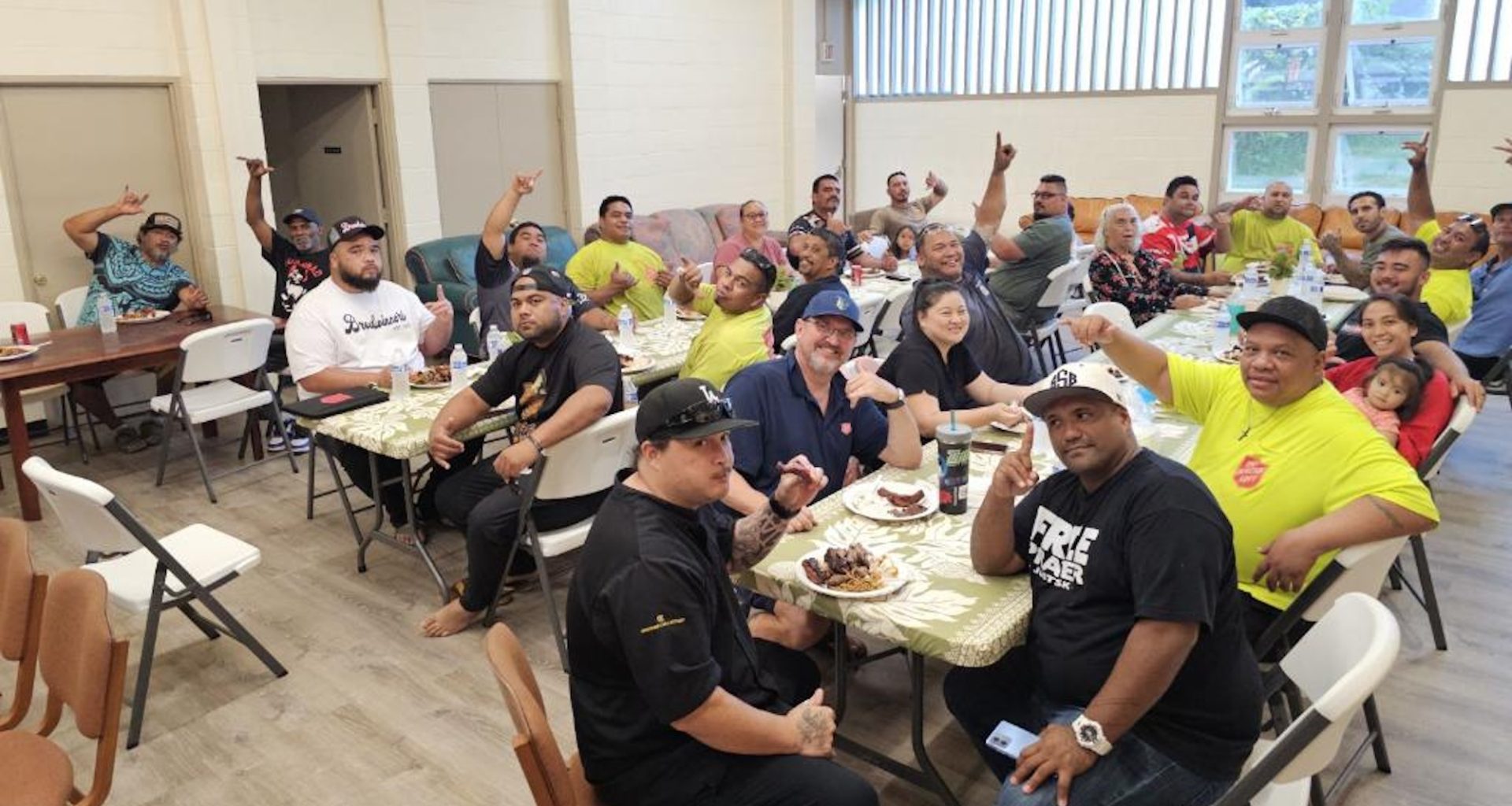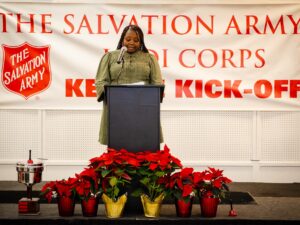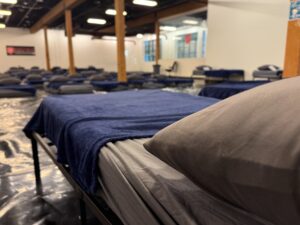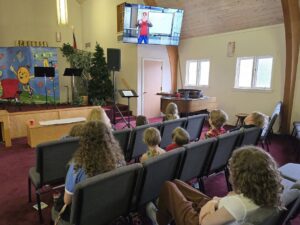For Tai Lazamo, a verse from Genesis became a guiding principle in his life.
“I will bless you,” God said to Abraham, “and you will be a blessing… and all peoples on earth will be blessed through you” (Gen. 12:2-3).
As a graduate of The Salvation Army Honolulu Adult Rehabilitation Center (ARC), he said blessing and supporting others has kept him accountable in recovery.
The Salvation Army’s ARCs are residential programs that provide spiritual, emotional and social assistance to individuals who are experiencing a variety of social, emotional and spiritual challenges, including issues relating to substance abuse. After a six-month stay at the Honolulu ARC, Lazamo returned to his home island of Kauai, Hawaii, where he felt equipped to reach those also battling substance abuse.
“It’s my duty to help others,” Lazamo said. “God has blessed me by transforming my life. Now, I pray for and guide others, just as I was guided when I was deep in addiction.”
While men from across the islands come to the Honolulu ARC for support, many graduates, like Lazamo, return to their home island, away from the ARC and its in-person support. And Lazamo was determined to take some of the support he found to others.
The Honolulu ARC gave him hygiene items, care packets with program information to distribute and a “free prayer” shirt for independent outreach.
He also began attending the Hanapepe (Kaui) Corps weekly for chapel and Bible studies.
“I just wanted to stay connected with The Salvation Army,” Lazamo said. “I started engaging with locals, showing them that I’m now sober thanks to the ARC. I had a poor reputation before, and people could now see my transformation.”
Lazamo said he often shares his contact information with those struggling with addiction, urging them to reach out to him rather than continue harmful habits. He said he is currently helping two men connect with the ARC.
“It’s what keeps me sober and responsible in recovery,” Lazamo said. “I see how others find support in me, and it keeps me going. I know God helped me so I can help others.”
Major Erik Hoogstad, Administrator for Development at the Honolulu ARC, said staying involved with the ARC community after graduation becomes a key part of recovery for many men.
“We find that most men want to stay connected after they complete the program,” he said.
“It’s what keeps me sober and responsible in recovery. I see how others find support in me, and it keeps me going. I know God helped me so I can help others.”
Tai Lazamo
The Substance Abuse and Mental Health Services Administration identifies key elements of recovery from addiction as a sense of purpose, a supportive community and a stable home life.
According to Hoogstad, focusing on these aspects can help individuals thrive after addiction. He added their goal is to enhance these efforts across Hawaii through connection and group outreach, which can help fulfill a sense of purpose.
“Many men graduate and return to their homes on the outer islands,” Hoogstad said. “We’re aiming to be intentional with continued opportunities for connection for them.”
To put this into practice, the Honolulu ARC organized an alumni family barbecue in Kauai in June to boost support for graduates and give them a chance to connect with those struggling with substance abuse.
Hoogstad said more than 55 individuals attended the inaugural barbecue. In addition, the group hit the streets to conduct outreach, pray for people and distribute 150 hope packets that included information about the ARC.
“Hundreds of people have graduated from the ARC in Honolulu,” Hoogstad said. “Part of that long-term recovery is staying connected with the support system that the ARC brings. It shows them that they’re not alone.”
For Lazamo, being involved in this way is something he never imagined. “People are asking me to pray for them and they’re confiding in me. It’s amazing and I would have never been able to do this if I hadn’t gotten sober.”
David Chung, Honolulu ARC Alumni President, said getting graduates together for outreach is a way to demonstrate their progress and speak to the success of the program.
“These men have changed their lives around,” Chung said. “They’re eager to get out there, show their transformation and help others. Oftentimes they’re helping people they knew when they were addicted.”
Future alumni family barbecues are scheduled to take place on different islands, with the next one on Maui.
To coordinate similar efforts across the Western U.S., an Alumni Fellowship website was launched for ARC alumni and staff.
“It’s a way to simplify staying connected and maintaining relationships during recovery,” said ARC Donor Development Manager Atticus Firey, who designed the site. “The goal is for ARCs to use the platform to keep recovery going.”
Chung said he plans to use the website in Hawaii to nurture connections years after men graduate.
“It can’t be done alone,” he said. “Staying connected is everything for those in recovery.”
Do Good:
- See how The Salvation Army supports rehabilitation.
- Do you enjoy inspiring stories of impact that build well-being for all? Want to know how to get involved in doing good right where you are? Interested in tools for taking your next best step, owning your story and stepping into your calling? Like reminders that God is good, faithful and offers you joy and peace? Get the Do Good Digest and find weekly inspiration right inside your inbox.












